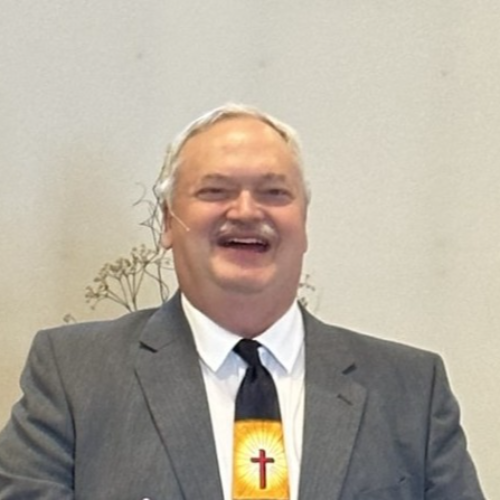-
Work Hard Or Hardly Work?
Contributed by Kevin Barron on Nov 28, 2017 (message contributor)
Summary: This sermon uses the Labor Day holiday to explore how God works for us, in us, and through us.
WORK HARD OR HARDLY WORK?
HEBREWS 13:20-21
LABOR DAY SUNDAY
SEPTEMBER 5, 2004
OSCEOLA, AR CHURCH OF THE NAZARENE
INTRO. Labor Day is tomorrow and one of the first things I think about when
I think of work is Fibber McGee, the old-time radio show. He would always
say, that he was too heavy for light work and too light for heavy work! We went
to church in Cincinnati with a guy like that. Dan was an older guy - he retired
while we lived there - and he worked a job fine, but he was no hand for any
kind of work around the house or church. I remember one time moving some
piece of furniture of his that was heavy and him just standing there,
encouraging me to be careful or saying something about the weather, just being
totally useless! You know, sometimes I think we get that idea of God, that he’s
glad to be with us and so on, but that he really doesn’t do anything. We see that
with false gods all the time - in the Old Testament, when Elijah was
confronting all the false prophets on Mount Carmel and their gods could not
deliver, he sarcastically told the false prophets, “Shout louder! Surely he is a
god! Perhaps he is deep in thought, or busy, or traveling. Maybe he is sleeping
and must be awakened” (1 Kings 18:27). Is the true and living God like that?
How does God work?
I. GOD WORKS FOR US (20). It only makes sense to start here, because if
God is not at work for us, where would that leave us? How could we get
through life if God was not at work on our behalf? It seems too often, though,
that we have this sense of “I can do it myself” and, if God is involved, it is in
the role of advisor, or moral support, not in doing anything important. We see
and hear this all the time. “I will get through this.” “I will quit smoking.” “I will
lose weight.” On and on it goes! It is as if God does nothing of any value for us!
My attitude should be that of, where would I be without God, and not, where
would God be without me. God can get along without us just fine, but I don’t
think the opposite is true. Martin Luther, the spark plug of the Protestant
Reformation, understood this very well. When he was called before the church
leaders of his day to explain his beliefs and then told he would change his mind
or be in serious trouble, he refused to give in, he did the right thing and stood
by God and his Word. He wrote about that meeting, “God did it all. Phillip (the
friend who was with him) and I just sat around and drank beer.” Now, this is
not an endorsement of alcohol. It is an endorsement of trusting God! How does
he work for us?
A. He works for us in CREATION (20, through “eternal covenant”). We
have to start with creation, because nothing else would have happened if that
had not taken place. The Bible says, “God saw all that he had made, and it was
very good” (Genesis 1:31). God took great pride in his creation, and with good
reason. It was simply the best that he could do for us, and he did a great job! He
has placed so many resources at our disposal to live on this earth, and live a
good, satisfying life. Where would we be if we didn’t have enough water on
this earth, enough good air to breath, rich soil to grow crops, and on and on?
Scientists can tell you just how much life on earth depends on how far we are
from the sun, the angle at which the earth tilts, how fast it goes around, and so
many different factors. Who put all that together? God himself, and we should
be thankful he works for us in creation.
B. He works for us in CRUCIFIXION (20, “brought back” to end). We
had no chance of dealing with the results of sin in this world. Sin and its effects
had overwhelmed and defeated us. God’s response was to work for us through
Jesus Christ, his Son! The thing about crucifixion is that there was hardly any
more disgraceful way to be executed in Jesus’ day.
At one point early in Julius Caesar’s political career, feelings ran
so high against him that he thought it best to leave Rome. He sailed
for the Aegean island of Rhodes, but en route the ship was attacked
by pirates and Caesar was captured. The pirates demanded a
ransom of 12,000 gold pieces, and Caesar’s staff was sent away to

 Sermon Central
Sermon Central



